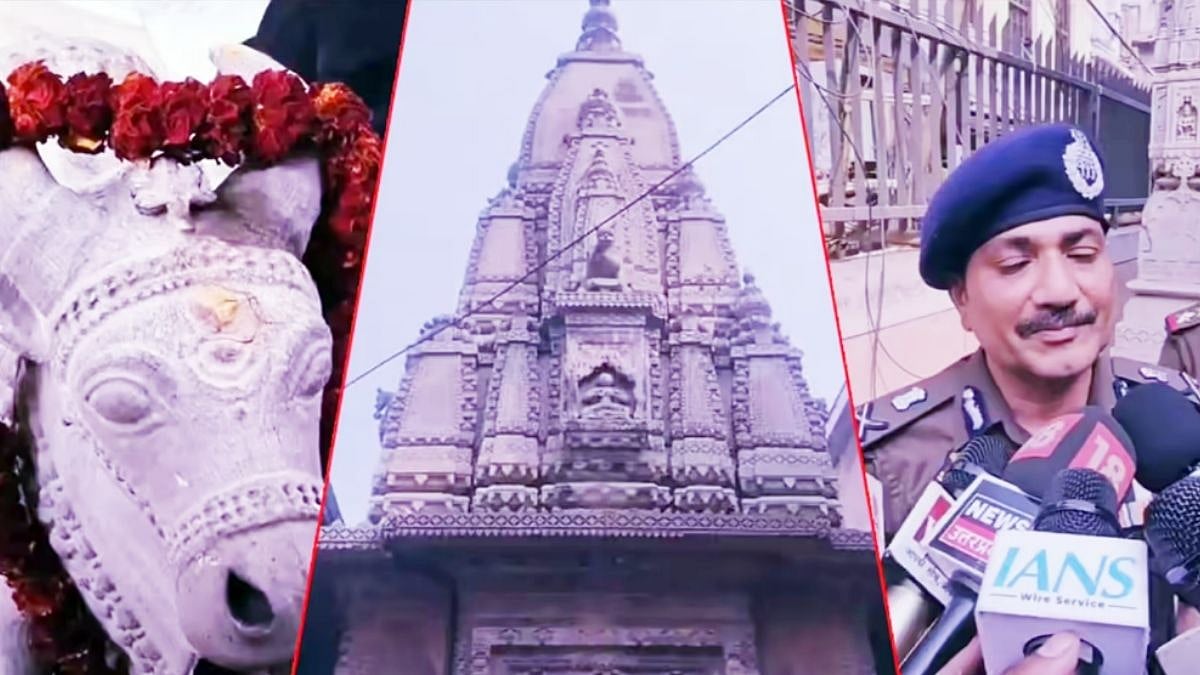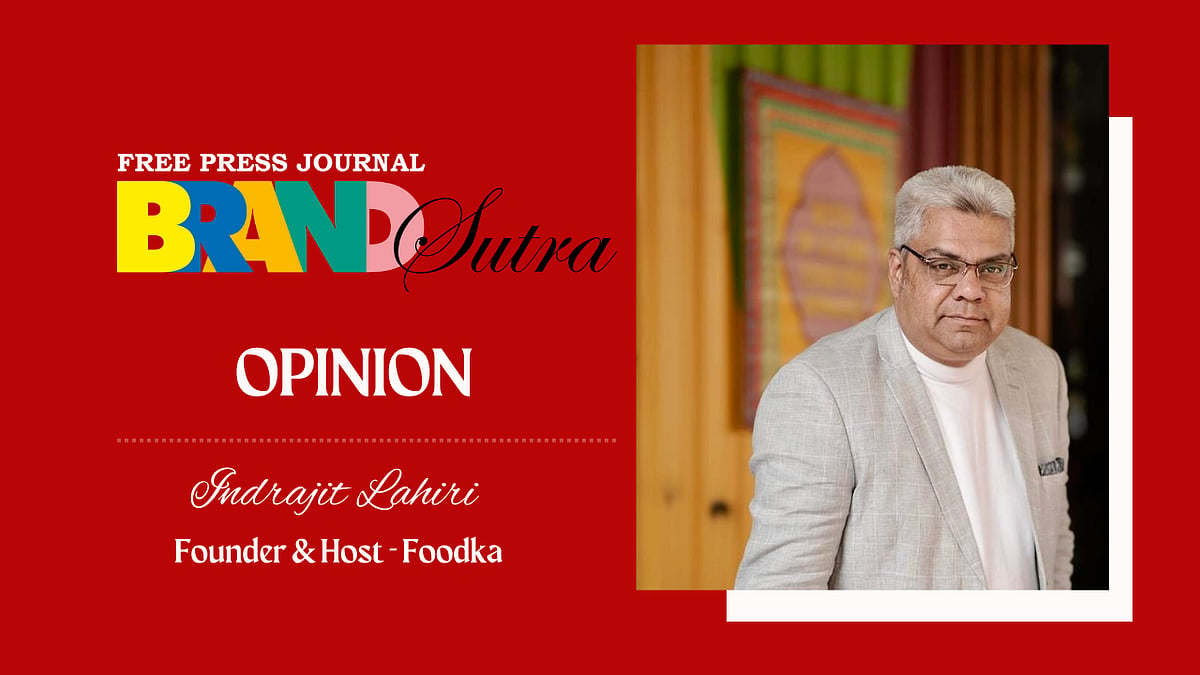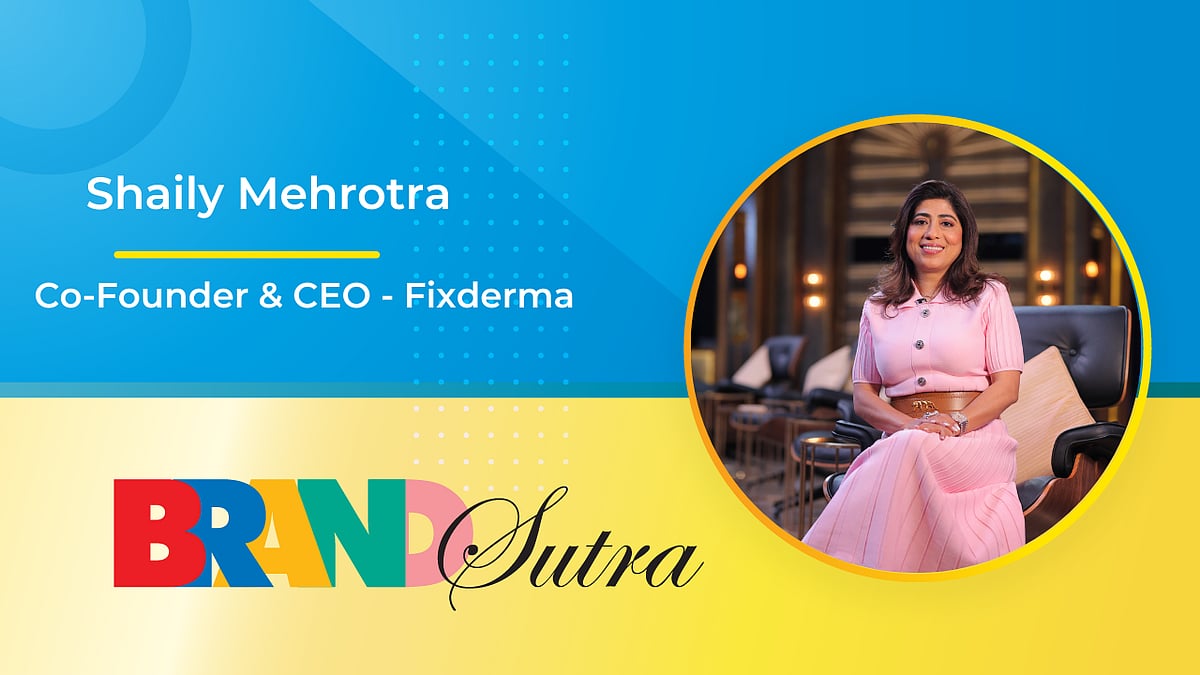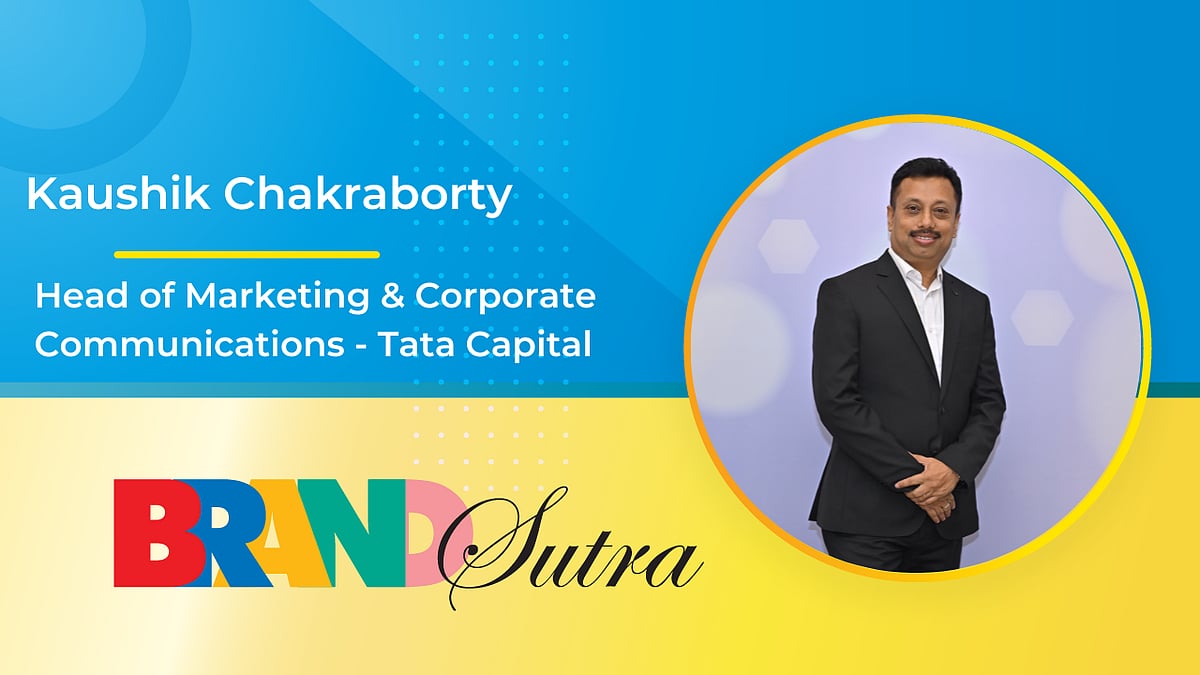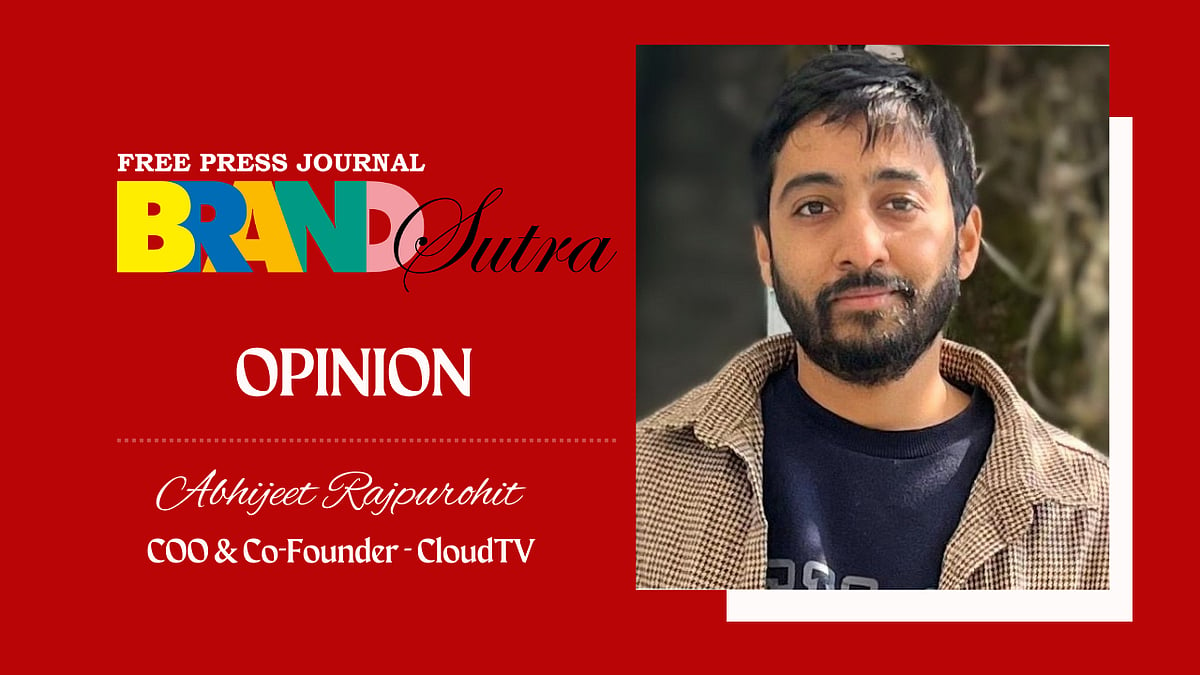When the inimitable Ambi Parameswaran, veteran adman, brand coach and founder, brand-building.com, launched his 11th book, titled ‘All the World’s a Stage’ at the Crossword store at Kemp’s Corner in Mumbai last week, keeping him company on stage were Radhika Gupta, MD & CEO, Edelweiss Asset Management Limited and Harshil Karia, Founder, Schbang and Co-Founder, Level, who have most successfully played out in their lives the subject of the book: Personal Branding. Their conversation brought out great anecdotes and insights on how a person becomes a brand, touching on topics such as executive presence and managing one’s digital footprint, that are dealt with in the book. Lively interactions with the audience opened up fresh perspectives on personal branding as a route to success and how people can go about it.
The book is dedicated “to the memory of Mahatma Gandhi, the most enduring personal brand to emerge out of India”, and is presented as a conversation among a group of friends from business school who are meeting for their silver reunion at their alma mater, IIM-Calcutta (where Ambi studied too). Devoid of jargon, the book analyses personal branding through the animated discussions, arguments and counter-arguments of the protagonists, and reaches out to the reader in a simple yet powerful way. It provides a great primer to the subject for young and not-so-young readers, and offers a concrete roadmap to building oneself as a brand.

Here are excerpts from a conversation with Ambi Parameswaran:
Congratulations on your 11th book, ‘All the World’s a Stage’! What made you adopt the fictionalised conversation-based narrative to write this book on personal branding?
The idea of writing a fictionalised book on branding and personal branding struck me when I read a book that tackled a very serious subject through a conversation. Since I had not read or heard of any book that tackled the topic of personal branding in a conversational manner, I thought I should take the risk and write a book. Fortunately, my literary agent Anish Chandy thought it would work, and the Westland Books team thought so too. So the book was conceptualised during the lockdown, in May 2020. It got green-lighted in August 2020 and was completed by May 2021.
Tell us about the making of the book… what were your own discoveries about personal branding that surprised you while writing ‘All the World’s a Stage’?
I am not a personal branding expert, but when the IIT Madras Alumni Association wanted me to deliver a series of branding webinars, I thought of three topics - Branding Basics, B2B Branding and Personal Branding. Interestingly, several companies approached me to do a session on personal branding after hearing me. That got me thinking that there may be a book somewhere there. I decided to read all that I could get on personal branding. I also listened to numerous podcasts on the subject. Then the idea of the narrative approach happened.
How have you seen the concept of personal branding evolve around you over the years? And where is it headed? Can there be such a thing as an overdose of personal branding to the detriment of employers?
We tend to believe that personal branding is something that social media companies have created. That is not true. The oldest article on personal branding was written 25 years ago. And if you look at academic literature and journals like Harvard Business Review, you find that there are many papers on the subject. Interestingly, the idea of personal branding came up before social media. Unfortunately, a number of millennials think that in order to build your personal brand, all you need to do is be very active on social media. This is a flawed assumption and I have addressed that in my book.
What are some of the pitfalls that one should avoid as one goes about the process of building oneself as a brand?
One key pitfall to avoid is the assumption that being active on social media is enough. You need to follow the simple steps that I have explained in my book: first define what you want to stand for, it all starts from there; then you decide on your executive presence; then comes your executive voice (written and oral); you need to then amplify the brand through judicious communication. This is the simple process. Just going on Twitter or Insta and posting random messages is not going to help build your personal brand.
What are some of your key insights about the dynamics of personal branding in the advertising industry of today? Who would you call out as some great examples of personal branding in the industry?
The Indian advertising industry has had some great personal brands. People like Subhas Ghosal, Bal Mundkur, Gerson da Cunha, Alyque Padamsee and Subroto Sengupta built great agencies and great personal brands. Each of them built it differently. Ghosal positioned himself as a visionary leader and an industry lighthouse. Sengupta wrote books, taught in B Schools. Gerson and Alyque had an active life in theatre. In recent times, advertising leaders like Piyush Pandey, Anand Halve, Pops Sridhar and Ramesh Narayan have written books. Rahul da Cunha has a great second career in theatre. There are others who have built personal brands through music, art, NGO work, etc. There is no dearth of admirable personal brands in advertising.
As one of the characters, Kunal, asks in the book, where do networking skills feature in personal branding?
We often mistake networking as going to parties and distributing visiting cards. That is the lowest and the least interesting way of networking. The better way is to join groups that are engaged in things that also interest you and take deep interest in what they do. This could be something unconnected with your business. In the book, I have written about how Bill Gates got introduced to IBM, thanks to his mother’s engagement with the charity organization United Way, where she had befriended a senior leader from IBM.
In the last chapter of your book, you talk of Brand Gandhi as the most powerful personal brand built in this millennium because of his understanding of semiotics. What, according to you, should be top of mind for people to use semiotics to their advantage?
The last (bonus) chapter of the book is about how Mahatma Gandhi managed to build an enduring personal brand by employing many of the things I have written about in the book such as: defining your core, developing a unique presence, developing a voice, amplifying the brand through messaging, etc. Semiotics is the study of signs and Mahatma Gandhi used them well from the dress he used, the look he adopted, the place he lived, the music he used, etc.
What next? Have you already thought of what your next book is going to be about?
As of now, I am working on promoting ‘All The World’s a Stage’. There are a few other book ideas, but nothing that has been fleshed out as yet.
Here are some glimpses from the book launch event:
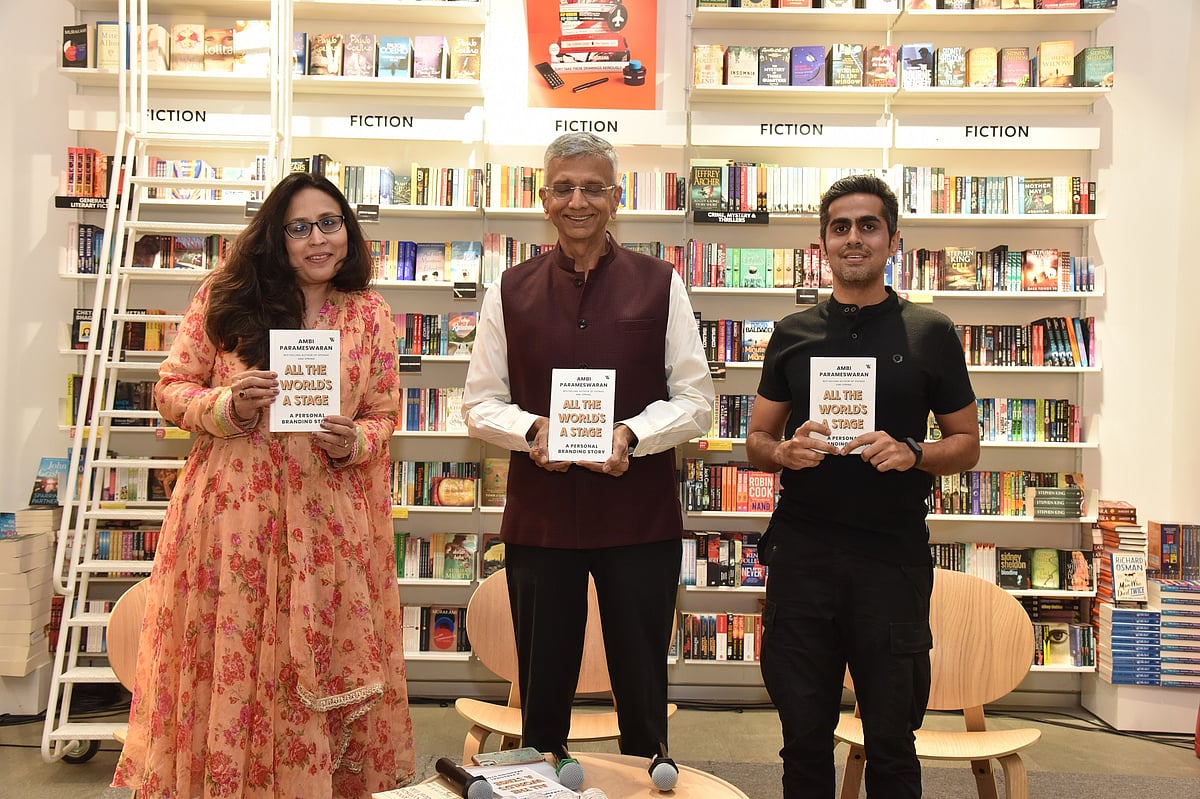
Radhika Gupta, MD & CEO, Edelweiss Asset Management Limited, author Ambi Parameswaran and Harshil Karia, Founder, Schbang and Co-Founder, Level at the launch of ‘All the World’s a Stage’ in Mumbai |
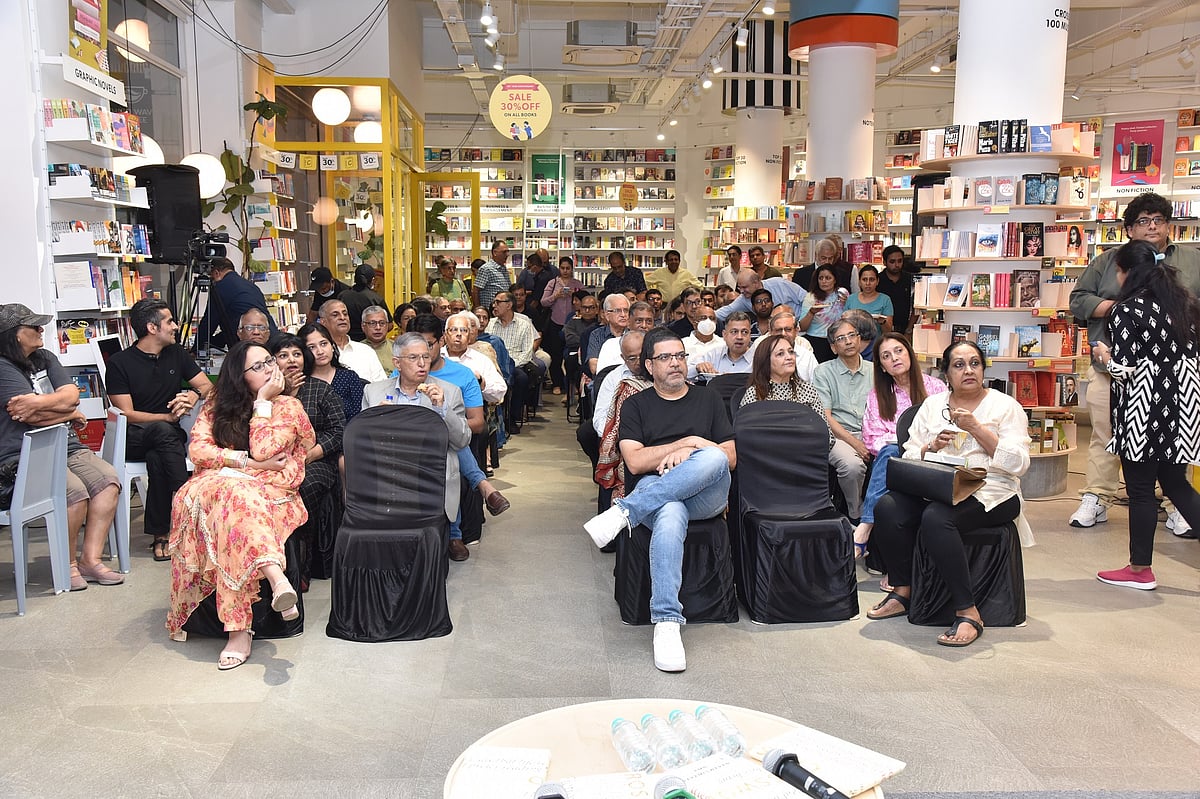
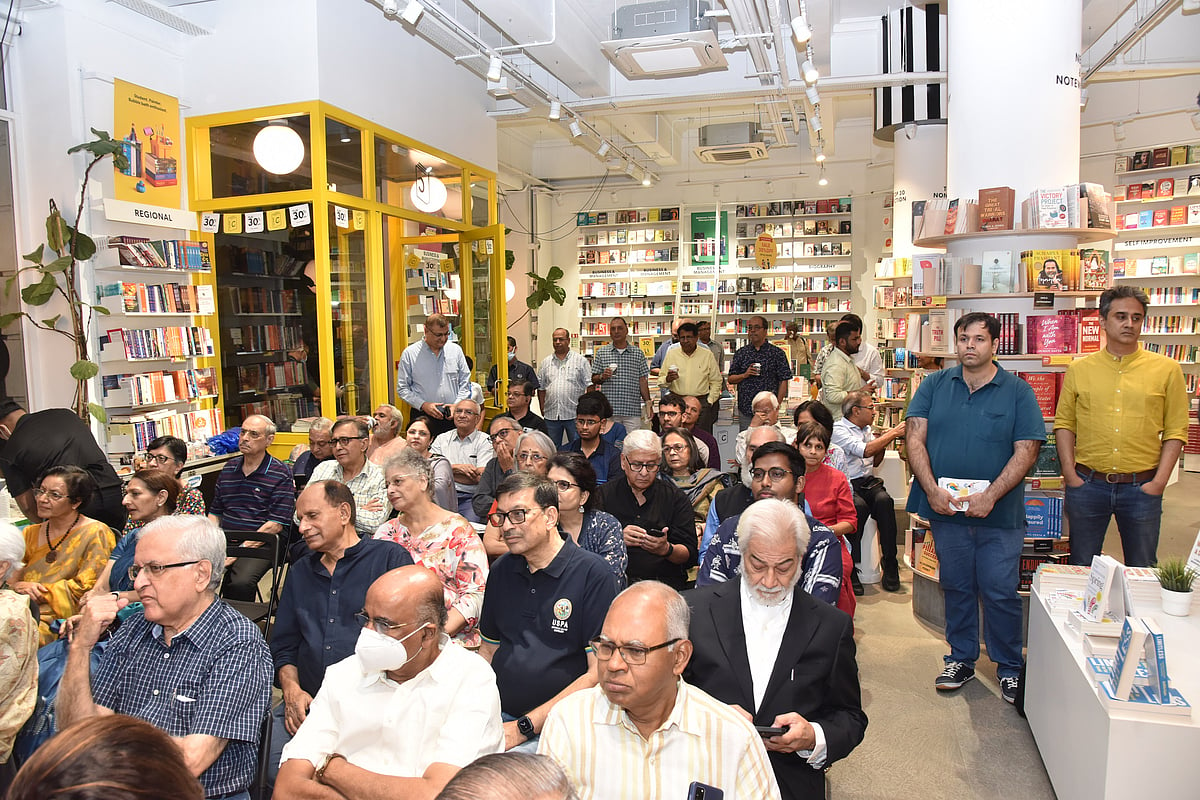
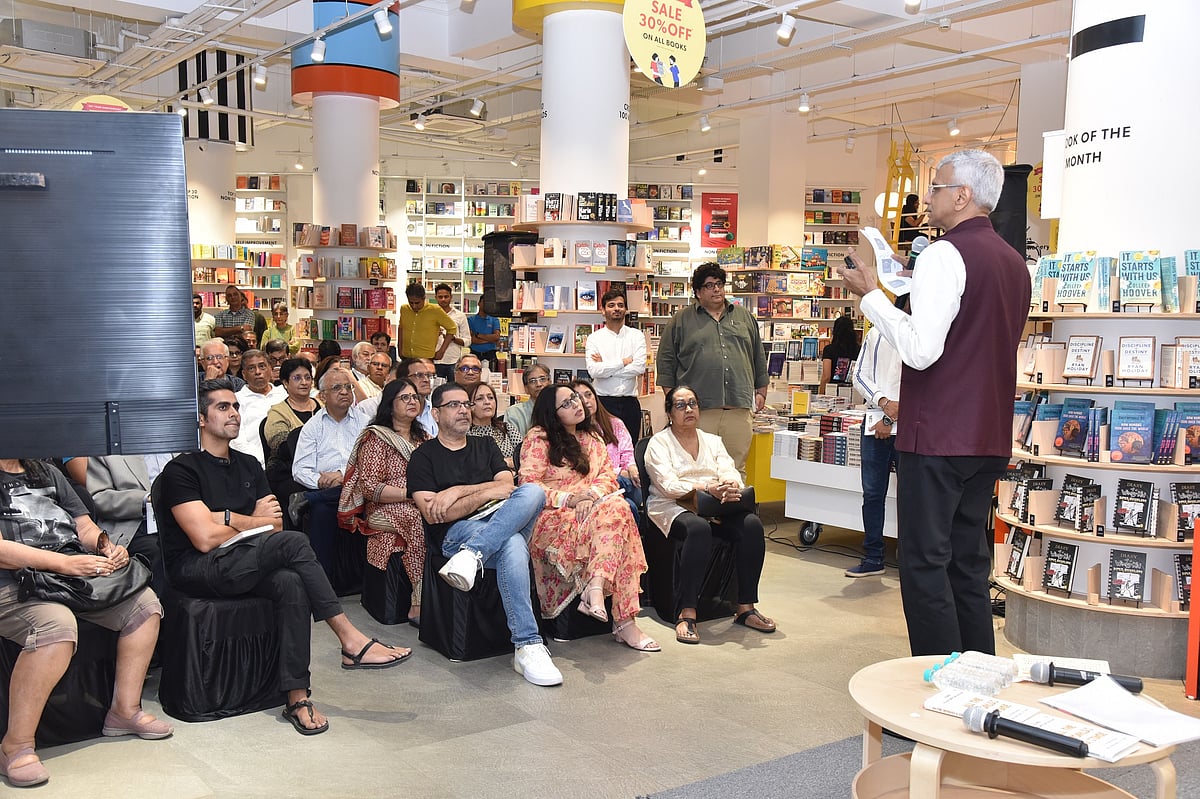
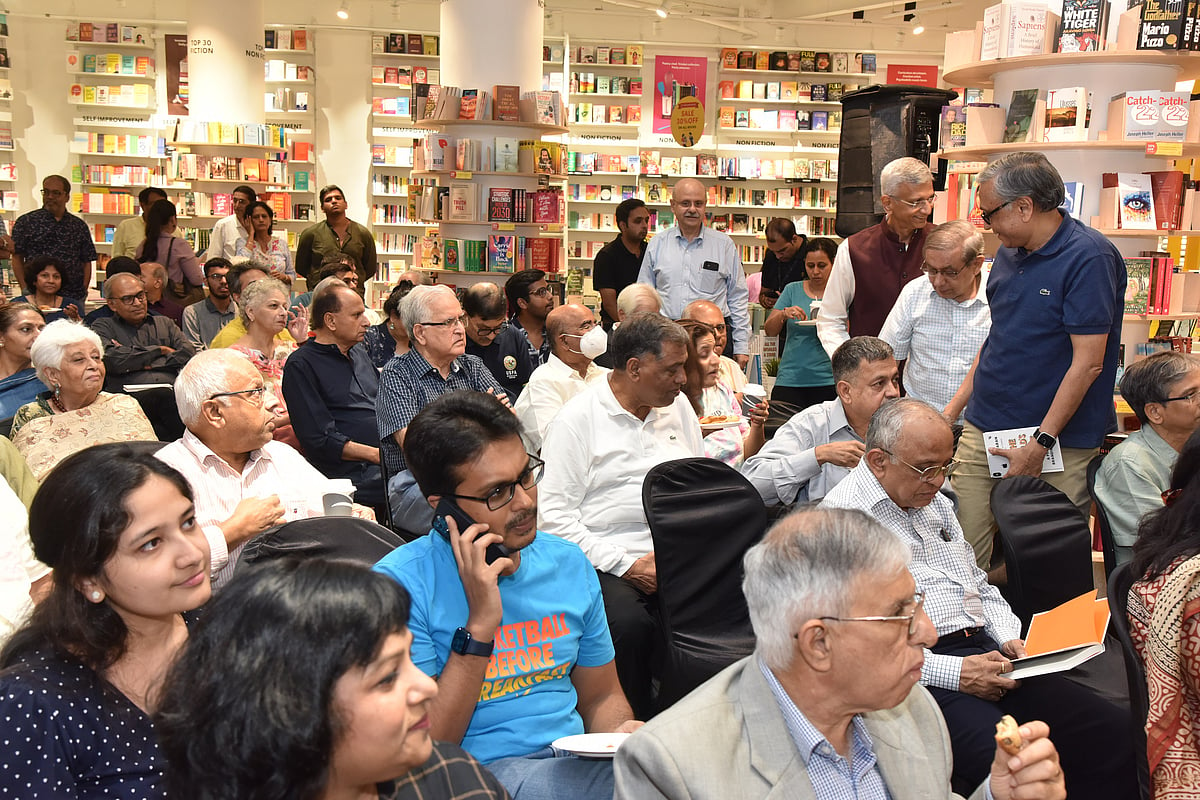
(All the World’s a Stage: Published by Westland Business; pp 166, price Rs 499)




